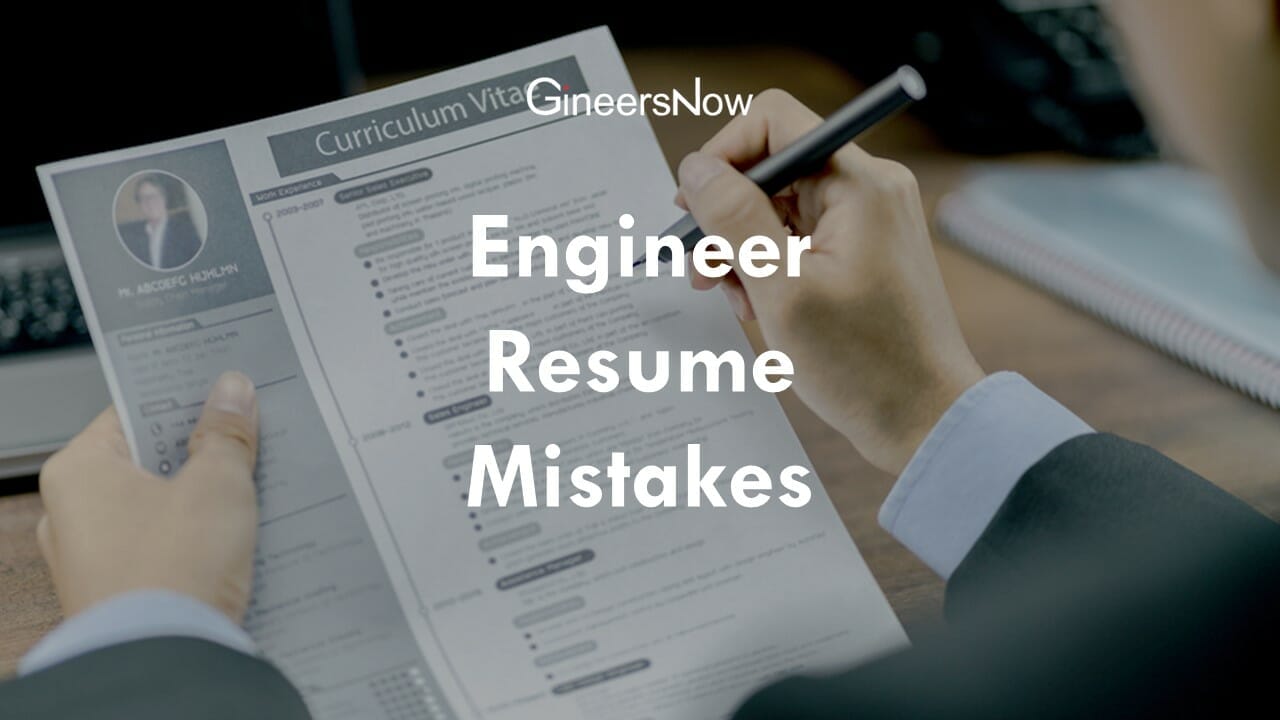If you’re striving for a position where your expertise can truly shine, it’s crucial to understand the nuances of crafting a standout resume. In this article, we’ll delve into the seven critical resume mistakes of Filipino civil engineers that may be keeping you unemployed—and, more importantly, how you can fix them now! Whether you’re a freshly graduated or a veteran, learning from these mistakes could be the key to unlocking new opportunities and advancing your career.
In the competitive world of civil engineering, where every project is a testament to innovation and precision, it’s ironic that many talented professionals find themselves sidelined by avoidable errors in their resumes. Imagine pouring your heart into groundbreaking designs and infrastructure projects only to be overlooked because your resume doesn’t effectively showcase your skills. The reality is that even seasoned Filipino engineers can fall prey to common pitfalls that misrepresent their qualifications and diminish their chances of landing lucrative roles in an ever-evolving job market. Let’s redefine what it means to make an impact on paper before making one on-site!

Importance of a Standout Resume for Civil Engineers
A standout resume is essential for Filipino civil engineers in a competitive job market, as it is both a marketing tool and a first impression. One of the common resume mistakes of civil engineers is showering their resumes with technical jargon without contextualizing it. While industry-specific terms showcase expertise, they can alienate hiring managers who may not be deeply versed in engineering lingo. Instead, articulating how those skills translate into real-world applications can create an engaging narrative that captures attention.
Furthermore, failing to highlight project outcomes and personal contributions can diminish the impact of even the most impressive qualifications. Civil engineering is fundamentally about problem-solving and tangible results; thus, including metrics—such as improved project completion times or reduced costs—can demonstrate effectiveness in previous roles. By transforming generic duties into achievements, candidates provide compelling evidence of their potential contributions to future employers while distinguishing themselves from other applicants vying for the same position. This shift from listing tasks to narrating successes enhances credibility and makes the resume more memorable.

What are the Several Resume Mistakes of Civil Engineers?
Here are the seven resume mistakes of Filipino civil engineers that are hampering job opportunities:
Resume Mistake of Civil Engineers #1. Generic Objective Statements.
One common issue in the resumes of Filipino civil engineers is the use of generic objective statements. These statements often lack specificity and fail to convey a candidate’s unique skills and experiences. Instead of capturing the attention of hiring managers, generic objectives can come off as cliché and uninspired. Such resume mistakes of civil engineers can lead to missed opportunities, as employers are looking for candidates who clearly understand the role they are applying for and how their background aligns with the company’s goals.
Another prevalent error in civil engineering resumes is failing to customize each job application’s objective statement effectively. A generic objective may express a desire for growth or development within the field but lack precision regarding what that means about a particular role or organization. When hiring managers see vague expressions of intent, they might question whether applicants truly understand what makes their firm unique or what specific contributions they could make. As such, these oversights can diminish an applicant’s perceived value among other qualified candidates.

How to Fix this Resume Mistake: Tailor your objective to each job.
To address this resume mistake, Filipino civil engineers must tailor their objective statement to each job application. This means reflecting on the specific requirements outlined in the job description and highlighting relevant qualifications. By customizing these statements, candidates can showcase their motivation for applying and demonstrate how their experiences fit into the position they seek. This targeted approach enhances clarity and positions civil engineers as proactive individuals who take their applications seriously, ultimately setting them apart from others who fall into common resume mistakes of Filipino civil engineers.
Filipino civil engineers should research potential employers and understand their core values and project types before drafting their objectives to rectify this issue. By identifying key aspects that resonate with personal career goals—such as innovation in sustainable design or commitment to infrastructure improvement—they can craft compelling objective statements that reflect both personal aspirations and alignment with employer objectives. This effort mitigates civil engineers’ resume mistakes and strengthens overall application appeal by clearly articulating how individual ambitions connect directly with organizational aims.

Resume Mistake of Civil Engineers #2. Overly Technical Language
One of the most common pitfalls Filipino civil engineers make when crafting their resumes is their heavy reliance on overly technical language. While industry-specific terminology demonstrates expertise, bombarding potential employers with jargon can alienate them, especially if they don’t share the same technical background. Resumes should serve as a bridge between your skills and what hiring managers are looking for; using convoluted language risks creating a disconnect that could cost you an interview.
Moreover, hiring managers often review dozens or hundreds of resumes during recruitment. They typically prioritize clarity and relevance over complexity. Instead of searching for opportunities to impress with advanced terminology—like geotechnical engineering methodologies or hydraulic design principles—focus on articulating your achievements in accessible language. Highlighting your contributions to projects using relatable terms can create a more engaging narrative, showcasing your problem-solving abilities while retaining technical credibility. Clarity is key; let your accomplishments shine without getting lost in translation!

How to Fix this Resume Mistake: Simplify terminology for broader understanding.
One of the most common pitfalls in a civil engineer’s resume in the Philippines is overly technical jargon that may alienate hiring managers, especially those without a specialized background. While it’s natural to want to showcase your expertise in advanced engineering concepts and software, using complex terminology can obscure your qualifications. Instead, reframe these terms into accessible language that still conveys your skills but makes them relatable to a broader audience. For instance, rather than say you conducted a finite element analysis, you might write and perform detailed simulations to improve project efficiency. This approach highlights your capabilities and invites readers from diverse backgrounds into the conversation.
Furthermore, consider showcasing accomplishments through universally understood metrics or outcomes instead of technical specifics. Instead of delving deep into the intricacies of design methodologies, emphasize how those methods translated into real-world results—like cost savings, project timelines met ahead of schedule, or safety improvements on-site. By crafting stories around your achievements that any hiring manager can appreciate regardless of their engineering knowledge, you elevate your resume from a niche document to an engaging narrative that stands out in a competitive job market. This shift improves understanding and fosters connections with employers who may appreciate clarity and effectiveness just as much as sophistication in technical skills.

Resume Mistake of Civil Engineers #3. Ignoring Job Descriptions
Ignoring job descriptions is a common yet critical mistake that Filipino civil engineers make when crafting resumes. Job descriptions are not mere lists of responsibilities; they are carefully curated blueprints designed to match the skills and qualifications that employers seek. When Filipino engineers overlook these details, it can result in a misalignment that diminishes their appeal to potential employers. Tailoring your resume to include keywords, specific technologies, or methodologies mentioned in the job posting can be the difference between landing an interview and remaining unnoticed in the applicant pool.
Moreover, each project or position listed on a resume should reflect how your experience directly relates to the demands outlined in the job description. For instance, if an employer emphasizes expertise in sustainable design but has experience working on green infrastructure projects, highlight this connection explicitly. By showcasing relevant achievements through quantifiable outcomes—like reducing costs by 20% or enhancing project efficiency—you demonstrate capability and an understanding of what matters most to prospective employers. Engaging with job descriptions helps create a narrative that resonates with hiring managers, illustrating why you are not merely qualified but also an ideal fit for their unique needs.

How to Fix this Resume Mistake: Align skills with specific job requirements.
When applying for a civil engineering position in the Philippines, aligning your skills with the job requirements outlined in the posting is crucial. This means going beyond a generic list of abilities and tailoring your resume to highlight relevant experiences that directly match employers’ requirements. Take the time to dissect each job description—look for keywords and phrases that indicate which technical competencies or software proficiencies are most valued. For example, if a position emphasizes expertise in AutoCAD or project management within certain sectors like infrastructure or environmental projects, ensure these terms appear on your resume and are supported by concrete examples from your past work.
Additionally, don’t just rely on hard skills; soft skills are equally pivotal in civil engineering careers. Demonstrating how you’ve effectively communicated with stakeholders, led teams through complex projects, or resolved conflicts can set you apart from other candidates. By weaving these elements into your narrative while keeping the focus on how they relate to the prospective role’s requirements, you create a compelling story that showcases not only what you’ve done but also why you’re uniquely suited for this new opportunity. This strategic approach will make your resume resonate more powerfully and attractively with hiring managers looking for their next standout engineer.

Resume Mistake of Civil Engineers #4. Lack of Quantifiable Achievements
One of the most overlooked aspects of a civil engineer’s resume is the absence of quantifiable achievements. When listing project experiences, many professionals fall into the trap of simply describing their duties rather than highlighting the impact they made. For instance, stating that you led a team on a bridge construction project fails to demonstrate your effectiveness in that role. Instead, quantify your contribution: “Led a team in completing a bridge project 10% under budget and three weeks ahead of schedule.” This transformation turns generic duties into compelling evidence of competence and leadership.
Moreover, incorporating metrics allows potential employers to visualize your contributions and understand how you can add value to their organization. Did your innovative design solutions reduce material costs? Or did you implement new processes that increased efficiency by 20%? By showcasing these numbers alongside details about your projects, you’re not just telling them what you’ve done but demonstrating how it matters. This approach shifts your resume from being an overview to becoming a strategic marketing document that clearly articulates why hiring you is an investment worth making. Don’t miss this opportunity—turning vague accomplishments into tangible successes can be the difference between landing an interview or getting lost in the applicant pool.
How to Fix this Resume Mistake: Use metrics to showcase your impact.
One of Filipino civil engineers’ most common yet overlooked resume mistakes is failing to quantify their achievements. Instead of simply listing project responsibilities, consider integrating specific metrics demonstrating your contributions and impact. For example, rather than stating that you “improved project efficiency,” say you “reduced project delivery time by 20% through streamlined processes.” This paints a clearer picture of your capabilities and captures the attention of hiring managers who are increasingly data-driven in their decision-making.
Another powerful strategy is directly relating your metrics to cost savings or revenue generation. If a design you implemented led to significant budget reductions or enhanced safety protocols that minimized risk and saved your employer money, articulate those numbers boldly. Phrases like “saved $50,000 by implementing eco-friendly materials in the Philippines” create a strong narrative around your skills and foresight. By effectively utilizing metrics in this way, you’re not just telling employers what you’ve done; you’re providing compelling evidence of how you add value, making you a standout candidate in a competitive job market.
Resume Mistake of Civil Engineers #5. Poor Formatting and Organization
Poor formatting and organization can undermine even the most impressive qualifications of a civil engineer’s resume. Imagine a hiring manager sorting through dozens of applications; an unstructured resume can quickly become frustrating, leading them to overlook your key accomplishments. A clean, concise layout with clear headings and consistent font usage enhances readability and reflects professionalism—something critical in the engineering field.
Consider using bullet points effectively to break down complex information into digestible pieces. This approach highlights your skills and achievements without overwhelming the reader. Maintaining a logical flow—such as grouping relevant experiences or organizing accomplishments chronologically—can make your narrative more compelling. Remember, clarity breeds confidence; employers are more likely to see you as a candidate worth pursuing when employers in the Philippines can easily navigate your resume.
How to Fix this Resume Mistake: Ensure clarity with a professional layout.
One of the most common pitfalls in resume writing for Filipino civil engineers is a cluttered layout that hampers readability. A professional layout isn’t just about aesthetics; it also reflects your attention to detail—an essential trait in engineering. Consider using clear headings, consistent font sizes, and plenty of white space to effortlessly guide the reader’s eye through your qualifications. A clean, organized resume allows hiring managers to quickly identify key skills and accomplishments, greatly enhancing your chances during those first critical seconds of review.
Don’t underestimate the power of bullet points in creating clarity. Instead of lengthy paragraphs that overwhelm the reader, succinct bullet points can effectively highlight specific achievements and responsibilities in previous roles. This format makes information more digestible and aligns with how engineering projects often require concise communication for effective collaboration. Remember, a well-structured resume invites curiosity—it encourages employers to delve deeper into your experiences rather than dismissing you due to an overwhelming presentation style. Ultimately, investing time in refining your resume layout could set you apart from equally qualified candidates who fail to make a strong visual impact.
Resume Mistake of Civil Engineers #6. Neglecting Soft Skills Section
One often overlooked area on civil engineering resumes is the soft skills section. While technical prowess and relevant experience are crucial, the ability to collaborate, communicate ideas clearly, and solve problems creatively can set candidates apart in a competitive job market. Employers increasingly prioritize teamwork and interpersonal skills because civil engineers rarely work in isolation; they must coordinate with architects, contractors, and stakeholders to bring projects to fruition.
Moreover, showcasing soft skills doesn’t merely list them but illustrates how these competencies have been applied effectively in real-world scenarios. For instance, rather than simply stating excellent communication skills, a candidate could describe a situation where they successfully navigated conflicts or facilitated productive stakeholder meetings. By integrating concrete examples of soft skill application into their resumes, Filipino civil engineers can give potential employers a more holistic view of their capabilities and stand out as versatile professionals ready to tackle complex challenges head-on.
How to Fix this Resume Mistake: Highlight teamwork and communication abilities.
One of the most common oversights in civil engineering resumes is underplaying teamwork and communication skills. While technical prowess is undoubtedly important, projects in civil engineering are rarely solitary efforts. Highlighting your ability to collaborate effectively with multidisciplinary teams can set you apart from other candidates. Consider using concrete examples that illustrate your role in team-based projects, such as how you contributed to a successful large-scale infrastructure plan or edited design workflows to enhance stakeholder collaboration.
Moreover, showcasing exceptional communication skills goes beyond listing a “good communicator” on your resume. Instead, demonstrate how these abilities translate into actionable outcomes. Could you simplify complex concepts for clients or facilitate workshops where challenging issues were resolved? Emphasizing these experiences illustrates your expertise and speaks volumes about your potential fit within any organization’s culture. The goal is to weave a narrative around teamwork and communication that resonates with hiring managers who prioritize cohesive work environments in their engineering teams.
Resume Mistake of Civil Engineers #7. Failing to Update Regularly
Regularly updating resumes is one of the most overlooked aspects of maintaining a competitive edge in civil engineering. Many Filipino professionals assume it requires little attention once their resume is polished and submitted. However, failing to refresh your resume regularly can lead to missed opportunities that arise from new skills or projects you’ve undertaken. Every time you complete a significant project or develop a new competency—mastering software like AutoCAD or leading a sustainable design initiative—it’s essential to reflect these achievements on your resume.
Moreover, an outdated resume may unintentionally convey stagnation as industry standards and technologies continuously evolve. Hiring managers are increasingly seeking candidates who demonstrate adaptability and ongoing professional development. Regular updates serve not only to capture your most recent accomplishments but also to align your skills with emerging trends in civil engineering practices. By revisiting and refining your resume every few months, you position yourself as a proactive candidate, ready for current challenges and future innovations within the industry.
How to Fix this Resume Mistake: Keep your resume current and relevant.
A common yet overlooked mistake is letting your resume stagnate. Civil engineering in the Philippines is an ever-evolving field, constantly emerging new technologies, methods, and regulatory standards. If your resume hasn’t seen an update in the last year or two, it’s likely outdated and fails to reflect the latest skills employers seek. Regularly revisiting your resume allows you to incorporate recent projects you’ve worked on, software you’ve learned, or certifications you’ve obtained, ensuring that it accurately showcases your most relevant experiences.
Tailoring your resume for each job application can significantly enhance its impact. Use keywords from the job description and specify how your past projects align with the prospective employer’s needs. This demonstrates that you’ve done your homework and makes it easier for applicant tracking systems (ATS) to recognize how well-suited you are for the position. By making these updates a regular practice rather than an afterthought, you’re positioning yourself as a proactive candidate committed to lifelong learning—a quality highly valued within the civil engineering community.
Conclusion: 7 Resume Mistakes of Civil Engineers. Revise your resume to enhance employment opportunities.
A well-crafted resume is your first opportunity to impress potential employers, so avoiding common pitfalls is crucial. Filipino civil engineers often overlook the importance of tailoring their resumes to match the job description. Instead of using a generic template, highlight relevant projects, technical skills, and achievements that align with the demands of each position. This personalized approach showcases your qualifications and demonstrates a genuine interest in the company.
Moreover, many Filipino civil engineers fail to emphasize soft skills such as communication and teamwork—qualities just as critical as technical know-how in this collaborative field. Including examples of how you’ve successfully led teams or communicated complex concepts can set you apart from other candidates who focus solely on your technical expertise. Addressing these common mistakes and revising your resume will significantly enhance employment opportunities in an increasingly competitive landscape.














